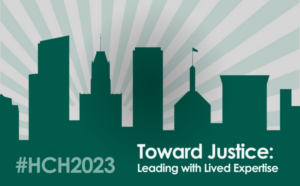Immigration status is a well recognized social determinant of health and can compound the social and medical needs of HCH immigrant patients. Immigration law directly influences non-citizens’ eligibility for a wide array of benefits and services, including health insurance. The health consequences of limited access to care are particularly magnified for those experiencing homelessness.
This workshop will employ case-based discussions to describe and address common barriers to care immigrant patients face. We will specifically address how to optimize health care delivery for immigrant patients experiencing homelessness by ensuring appropriate language access, developing policies on law enforcement requests to enter the premises, and use of welcoming signage, among other tools. In small groups, we will discuss the importance of understanding our patients’ immigration journeys, how to elicit such histories in a trauma-informed way, and how this information may be useful in revealing previously unidentified medical and mental health needs. Additionally, we will discuss how disclosure of certain kinds of trauma such as torture and domestic violence, may provide the patient a path toward a more permanent legal status, emphasizing the role of the health care worker in facilitating referrals to immigration attorneys.
In this workshop we will share some of the steps we have taken at BHCHP to inform and empower our immigrant patients, including: Know Your Rights trainings, creating a clinic dedicated to immigrant health, forging Medical Legal Partnerships, and more. We will also share staff capacity-building opportunities that have helped close gaps in care across patients of various language backgrounds, including trainings, hiring practices that prioritize cultural and language diversity, enhanced access to interpreter services, and more. We will also discuss the value of coalition building in enabling the sharing of best practices and prioritizing advocacy opportunities. One potential outcome from the workshop may be to generate a working group amongst HCHs interested in immigrant health and policy. establishing, operating, and evaluating the FHPCC for jurisdictions seeking to replicate this successful program model.
Speakers: Aura Obando: Family Team Medical Director, Boston Healthcare for the Homeless Program; Massachusetts General Hospital; Margaret (Maggie) Sullivan, Director: Oasis, Boston Healthcare for the Homeless Program | FXB Center for Health & Human Rights at Harvard
Session Materials:

